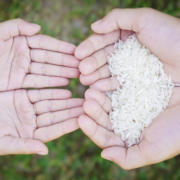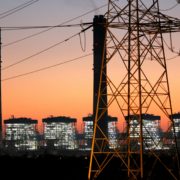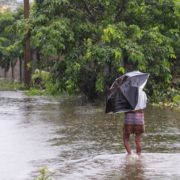
About Dil Rahut
Dil Rahut is vice-chair of research and a senior research fellow at ADBI.Hypertension, a ticking time bomb that can be stopped to save millions of lives

Hypertension affects 25% of the world’s population and can be a silent killer with no warning signs.
The triple burden of malnutrition in early childhood

Children from disadvantaged groups are particularly prone to developing nutrient deficiencies and growth problems.
COP27, climate change mitigation, and a just transition for developing Asia

Global communities need to come together to act quickly to reduce greenhouse gas emissions and attain net-zero carbon emissions.
Servitization of digital technologies to advance health inclusion in developing countries

Rectifying the uneven distribution of healthcare remains key to reducing health inequity.
Reimagining South Asia’s electricity system amid growing energy market volatility

Regional collaboration can help to alleviate South Asia’s energy security challenges, which have been compounded by rising oil and gas prices, inflation, prospective food deprivation, and food protectionism.
Protecting victims of climate-induced migration and displacement in South Asia

South Asia is home to a quarter of the world’s population and is extremely susceptible to climate change-induced displacement and migration.
Fixing the agriculture–climate change maladaptation information gap

Further research is needed on the risks associated with adaptation measures that can increase current or future vulnerability to climate change.
Digital governance can unlock connectivity potential and transformation

Digital governance incorporates new norms, rules, and processes to achieve efficiency and effectiveness in government functions for all stakeholders.
Driving household energy modernization in South Asia amid COVID-19

Policy makers must consider the possible impacts of the pandemic on households’ energy choices and their access to clean fuels.
The next steps for meeting nationally determined contributions after COP26

Reductions in emissions of carbon dioxide and other greenhouse gases (GHG) must be achieved in the coming decades to avoid catastrophic global temperature rises. Limiting global warming to within 1.5°C will require rapid, far-reaching, and unprecedented changes in all sectors. GHG emissions in Asia and the Pacific now account for over 50% of the world’s total.


Search
Subscribe / Connect to Asia Pathways
Subjects
- Accelerating Progress in Gender Equality
- Addressing Remaining Poverty and Reducing Inequality
- Agriculture and natural resources
- Capacity development
- Climate change
- Economics
- Education
- Energy
- Environment
- Finance and Innovation
- Finance sector development
- Gender
- Globalization and Economic Stability
- Globalization, Environment, and Climate Change
- Governance and public sector management
- Health
- Human Capital Development for Inclusive Growth and Shared Prosperity
- Industry and trade
- Information and Communications Technology
- Infrastructure
- Making Cities More Livable
- Miscellaneous
- Population
- Poverty
- Private sector development
- Promoting Rural Development and Food Security
- Regional cooperation and integration
- Sanitation
- Social development and protection
- Strengthening Governance and Institutional Capacity
- Subjects
- Tackling Climate Change, Building Climate and Disaster Resilience, and Enhancing Environmental Sustainability
- Transport
- Uncategorized
- Urban development
- Video Blog
- Water
Recent Posts
- Preparing for LDC Graduation: Sustaining Development and Integration amid Changing Trade Schemes
- Facing the Heat: Addressing the Health Impacts of Extreme Temperatures
- Harnessing Energy Transition to Power Rural Development and Female Empowerment
- The Promise and Perils of Mother Tongue-Based Education
- From Crisis to Resilience: The Evolution of the Banking Sector in Asia and the Pacific




Recent Comments